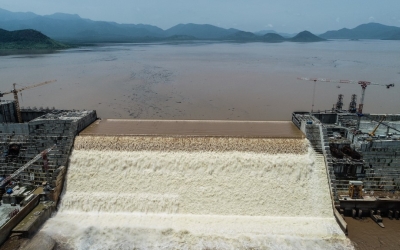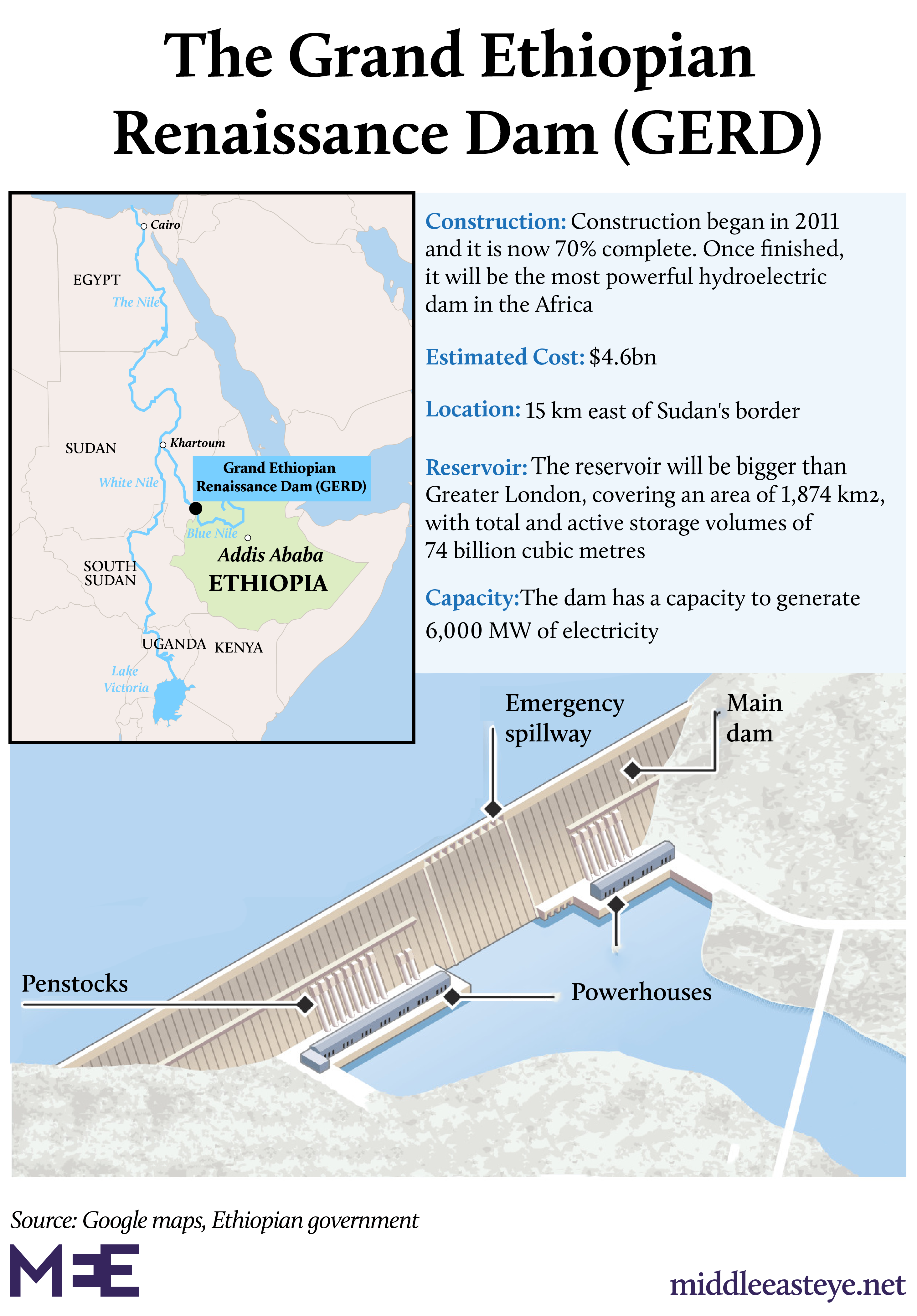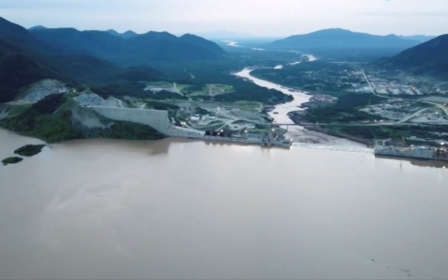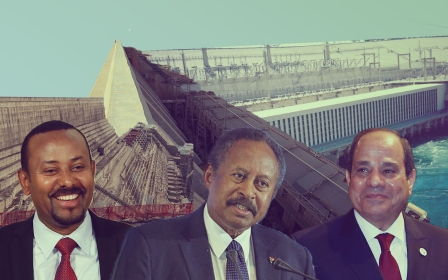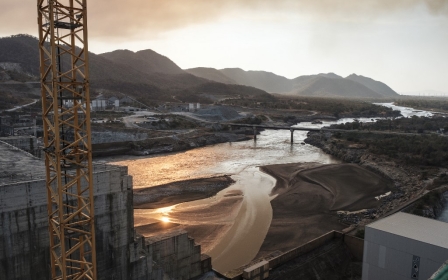Ethiopia seeks 'clarification' from US on aid cuts over Nile Dam construction
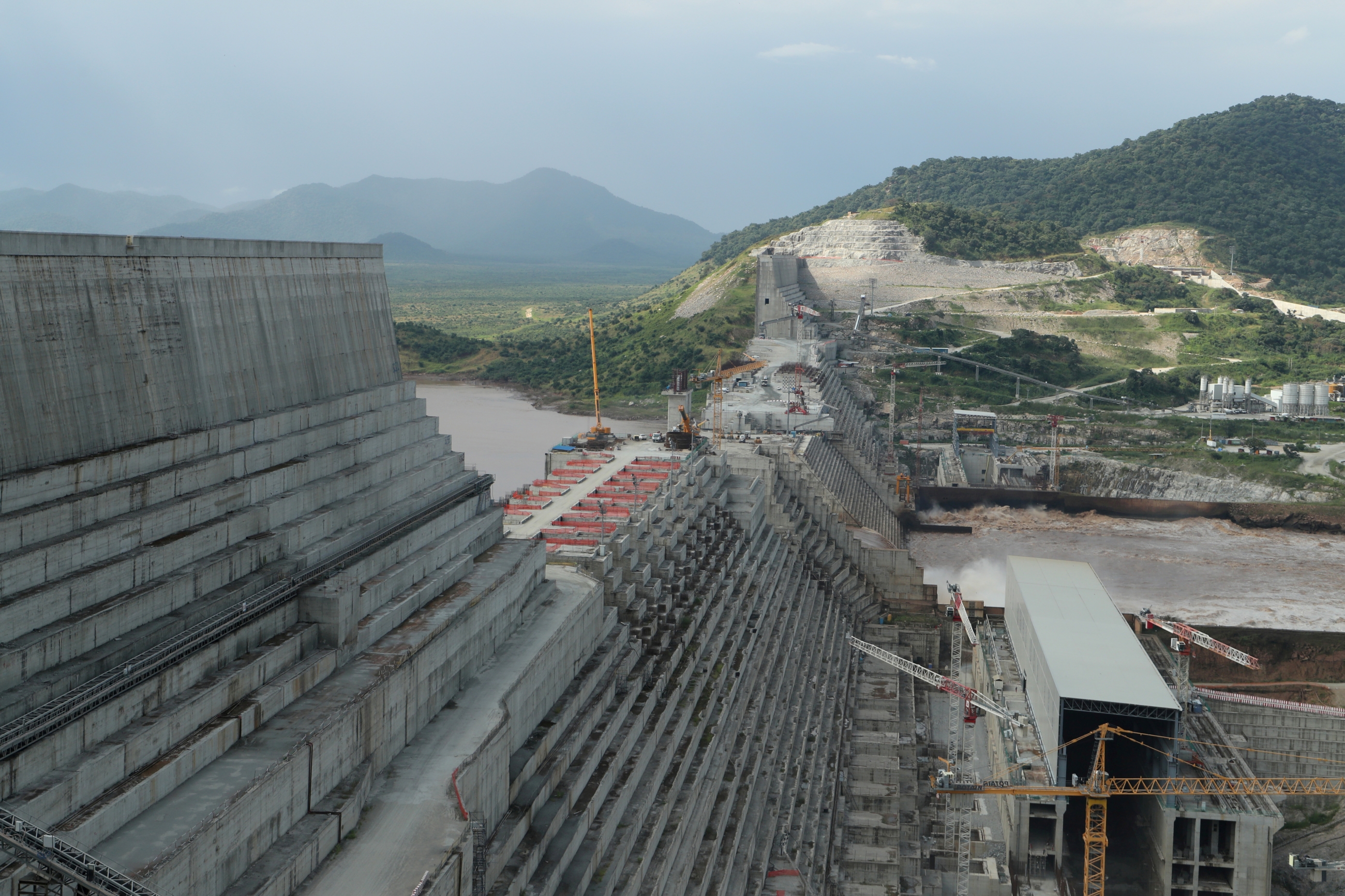
Ethiopia has asked the US government to clarify reports that Washington may withhold vital security aid following a dam dispute with neighbouring Sudan and Egypt.
The US government is reportedly considering cutting $130m in aid that could affect security, counter-terrorism and anti-human trafficking programmes in Ethiopia, as part of a bid to pressure the country from going forward with its plans to fill the Grand Ethiopian Renaissance Dam (GERD), Foreign Policy reported last week.
"We have asked for clarification on reports of the United States' decision not to give the $130 million it assigned to Ethiopia," Fitsum Arega, Ethiopia's ambassador to the US, said on Twitter on Monday.
"We have heard that the issue is related to the ongoing negotiations on the Grand Ethiopian Renaissance Dam."
The State Department did not respond to Middle East Eye's request for comment by the time of this article's publication.
Ethiopia is developing a 6,000-megawatt power plant at the dam, and has asserted its right to use the resource for its development despite objections made by Egypt and Sudan, both of which are concerned about the potential side effects the project could have in their own countries.
The three African nations came to another deadlock during talks about the dam on Friday, Sudanese Irrigation Minister Yasser Abas said.
Egypt and Sudan suspended their participation in talks with Ethiopia over its Renaissance Dam project in early August after Addis Ababa presented a proposal that did not meet the demands of the two downstream countries.
The decision followed a meeting between technical and legal committees representing the three countries, which was attended by observers from the United States, the European Union, and the African Union.
The three Nile Basin countries have been negotiating for nearly a decade to reach an agreement over what impacts of the $4.6bn GERD project may have on water security.
Egypt and Sudan insist that binding agreements are needed to secure their future interests and water security, calling for such agreements to be settled prior to the filling process.
Ethiopian Prime Minister Abiy Ahmed said earlier in July that his country had already achieved its first-year target for filling the reservoir, thanks to a heavy rainy season.
Egypt relies on the Nile water for the vast majority of its water consumption and is concerned that the filling of the dam will exacerbate a water shortage crisis in the event of a prolonged drought.
Sudan, Ethiopia's northern neighbour, has concerns regarding the potential impact of the construction of the dam on its own dams, and for the safety of its population and farmland from flooding that could result from faults in the construction or operation of the GERD.
Ethiopia, the source of 85 percent of the Nile's water and the manager of the GERD, is primarily concerned about its own pressing energy needs and the potential of the dam to lift millions of its people out of poverty.
Once operational, it will provide much-needed electricity for the country's nearly 115 million population, the majority of whom are not currently connected to the grid.
The speed of the filling of the dam will potentially have an immediate effect on Egypt.
If it takes five years to fill the dam, it will reduce Egypt's water supply by 36 percent and destroy half of Egypt's farmland, according to the Egyptian government.
Middle East Eye delivers independent and unrivalled coverage and analysis of the Middle East, North Africa and beyond. To learn more about republishing this content and the associated fees, please fill out this form. More about MEE can be found here.


